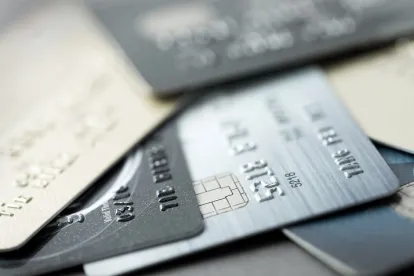Justice Kavanaugh said earlier this summer that “[c]ourts sometimes makes standing law more complicated than its needs to be.” The majority in the Eleventh Circuit took that statement to heart in its en banc opinion in Muransky v. Godiva Chocolatier, Inc., No. 16-16486 (11th Cir. Oct 28, 2020) and vacated a previous ruling affirming the $6.3 million settlement between Godiva Chocolatier and a class represented by Dr. David Muransky. Relying heavily on Spokeo, Inc. v. Robins, the en banc Eleventh Circuit concluded that the class representative lacked Article III standing because he “failed to allege either a harm or a material risk of harm” stemming from the technical violation of the Fair and Accurate Credit Transactions Act.
The facts of Muranksy are unremarkable. Dr. Muransky brought suit alleging a pure statutory violation: after spending less than $20 on Godiva chocolate, the store gave him a receipt showing his credit card’s first six and last four digits, which is too many digits under FACTA. FACTA prohibits retailers from printing “more than the last 5 digits of the credit card number or the expiration date” on the consumer’s receipt. The statutory penalty for such a violation can range between $100 and $1,000 for each receipt featuring more than the permitted five digits, with the size of the penalty depending on whether consumers can prove the retailer was willfully negligent.
The size of the putative class was vast and Godiva faced significant liability for the statutory violation. The parties moved quickly to settlement discussions because Spokeo was pending and would most likely be determinative on the issue of standing. Godiva ultimately agreed to pay $6.3 million to settle the suit. During the approval process, a class member objected to the settlement on the basis that Muransky lacked Article III standing because he failed to allege a “concrete injury” and the alleged FACTA violation—an increased risk of harm—did not present a “material risk” of harm in light of Spokeo. The district court approved the settlement without addressing the standing issue. A three-judge panel of the Eleventh Circuit upheld the settlement after finding that an increased risk of identity theft was enough to bring FACTA claims.
The full court reversed course and concluded Muransky did not have standing. In reaching this result, the Eleventh Circuit rejected Muransky’s argument that he suffered both harm and a risk of harm after receiving a credit card receipt with too many digits printed on it. Not surprisingly, the Eleventh Circuit’s analysis was focused on the Supreme Court’s Spokeo decision and whether Muransky suffered a concrete harm. In a sign of things to come for Dr. Muransky, the Eleventh Circuit stated, “A lot of ink has been spilled to explain what concrete means, but the best word may also be the simplest – ‘real.’ And statutory violations do no not –cannot—give us permissions to offer plaintiffs a wink and a nod on concreteness.”
Turning to the concreteness analysis, the Eleventh Circuit rejected Muransky’s attempts to “fit within Spokeo’s limits.” First, Murasnky argued the non-compliant receipt violated a “substantive right”. The Eleventh Circuit rejected that argument as “fuzzy” and held “no matter what label you hang on a statutory violation, it must be accompanied by a concrete injury.” Muransky’s remaining arguments that he suffered a direct harm were summarily rejected.
The Eleventh Circuit then addressed Muransky’s argument that Godiva’s FACTA violation exposed Muransky and the class members to an elevated risk of identity theft. Returning to the familiar Iqbal standard, the Eleventh Circuit held his “naked assertion” of an increased was not enough. Put in another way, he failed to “plead facts that, taken as true, plausibly allege a material risk, or significant risk, or substantial risk, or anything approaching a realistic danger.” At the end of the day, the complaint was simply “too thin to survive” following Spokeo’s holding.
Three judges—two of whom made up the original Eleventh Circuit panel that affirmed the settlement—dissented from the majority. Judge Wilson believed that Muransky had plausibly alleged that Godiva’s FACTA violation elevated his risk of identity theft which was enough to demonstrate concrete harm. According to Judge Martin, the majority erred by extending Spokeo “to conclude that courts may ignore the judgment of Congress” in determining whether a plaintiff has standing. Judge Martin felt it was enough that Congress had determined that printing too many numbers on a credit card receipt was a violation of FACTA. Judge Jordan also dissented, agreeing with the points made by both Judge Wilson and Judge Martin.
The Eleventh Circuit’s decision is in line with its sister circuits, namely the Second Circuit (Crupar-Weinmann v. Paris Baguette Am., Inc., 861 F.3d 76 (2d Cir. 2017)), Third Circuit (Kamal v. J. Crew Group, Inc., 918, F.3d 102 (3d Cir. 2019), Seventh Circuit (Meyers v. Nicolet Restaurant of De Pere, LLC, 843 F.3d 724 (7th Cir. 2016)), and Ninth Circuit (Bassett v. ABM Parking Services, Inc., 883 F.3d 776 (9th Cir. 2018)). Each of those cases involved a violation of the FACTA truncation requirement; in each case, the court held that the plaintiff lacked standing to sue. The only outlier is the D.C. Circuit. But, as the Eleventh Circuit recognized, the D.C. Circuit’s conclusion was based “on significantly different facts.” In Jeffries v. Volume Services of America, 2019 WL 2750856 (D.C. Cir. July 2, 2019), the retailer printed all 16 digits of the plaintiff’s credit card number and the expiration date of the card on the receipt. The D.C. Circuit held that the “egregious” FACTA violation of printing all 16 digits and the expiration date created a real risk of harm to the plaintiff because it created “the nightmare scenario FACTA was enacted to prevent” and provided “sufficient information for a criminal to defraud her.”




 />i
/>i
